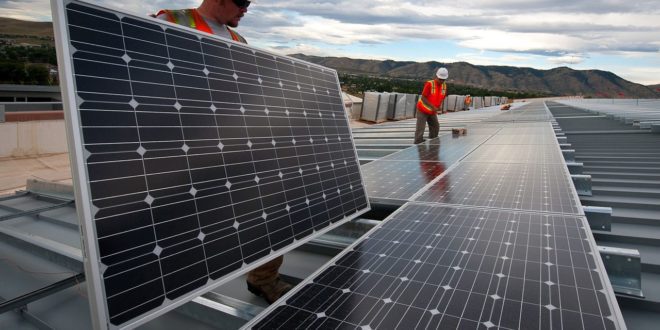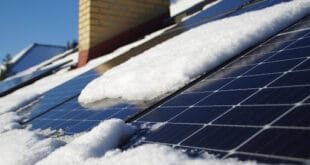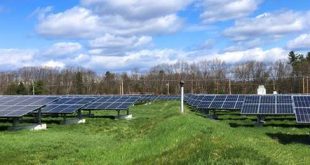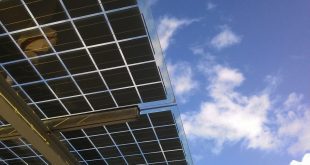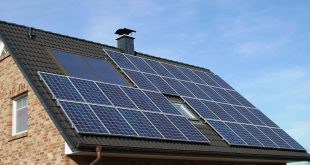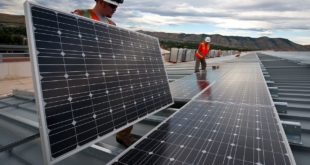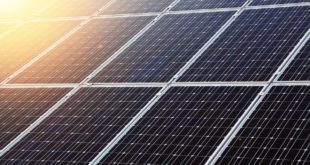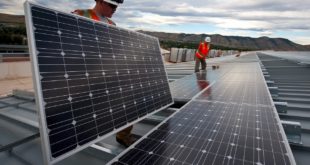The current wave of interest in solar energy may provide serious opportunities for electrical contractors.
Homeowners, business owners, and others are investing in solar systems. The benefits of these systems — primarily savings on energy bills and a smaller carbon footprint — are significant, especially while there is an ongoing conversation around sustainability and climate change.
This is how electrical contractors can branch out into solar contracting or solar installation and the challenges they’re likely to face along the way.
Research and Training
Learning about solar panels systems, how they work, and the people who buy them will be an essential first step.
How Do Photovoltaic Solar Panels Work?
Solar systems rely on bundles of photovoltaic (PV) cells, called solar modules — or more commonly, solar panels. These PV cells capture sunlight as it hits the surface of the panels. Captured energy, already converted to direct current, is transformed by an inverter into AC energy usable by building appliances. Excess energy may be stored in home battery systems or transferred back to the grid.
A system may use one large, centralized inverter or an array of mini-inverters closer to each individual panel. Whether a system designer chooses one option or the other will typically come down to risk. A large, centralized inverter creates a significant point of failure for the system. Mini-inverters may distribute that risk at the cost of increased maintenance or installation costs.
This is just an introduction to the basics of modern PV systems. Before anyone can begin pursuing certification or installing systems, they will also want to research available materials and components. For example, a wide range of cable and power conduits are available, some with features like UV resistance, water-tightness, and flexibility.
A solar contractor also wants to stay on top of industry developments to learn more about innovative panel coverings, for example, that can help reduce the system’s maintenance needs and extend its lifespan.
Who Wants Solar Panels?
A diverse base of clients is investing in PV solar systems right now. Individuals, business owners, and government agencies are all interested in outfitting buildings with solar panels. These different groups of clients have different needs and may have access to unique solar system benefits.
Net-metering and similar programs, for example, allow homeowners to sell excess energy produced by their home solar system back to the grid. This can significantly boost the total potential cost savings offered by the solar system.
Other homeowners are interested in self-sustainability and will specifically want to be disconnected from the grid.
Learning more about the potential client base can also help a contractor research solar incentives and other programs that encourage individuals to adopt solar technology. These incentives may offer tax credits or refunds for the cost of a solar project and can help individuals afford the cost of a solar system.
Being able to discuss these potential benefits and savings can make it easier to sell someone a solar system or walk a potential client through all their available options.
Certification and Licensing
A growing number of solar installation and repair certifications exist. Training for and acquiring these certifications will help an electrician build the knowledge base they need to begin work as a solar contractor.
A popular and nationally recognized certification is offered by the North American Board of Certified Energy Practitioners (NABCEP). To become NABCEP-certified, installers must have a certain amount of documented work experience and pass a written exam. Installers must also be recertified every three years and take continuing education courses that help keep them up to date with industry best practices.
Typically, contractors do not need a special solar installer certification to work on PV solar systems. However, most states require some type of licensing — typically a plumbing or electrical contractor license.
If a contractor is already a certified electrician, they may not need to pursue any additional certifications to start working on solar systems. Still, acquiring experience and knowledge before beginning work will be an essential investment.
Other Considerations and Finding a Customer Base
With this knowledge and training, a contractor will be ready to take on solar panel installation and repair work. Advertising and networking will still be important, however, before a contractor can establish a new solar installation business and build up a client base.
Reaching out to contractors already in the local solar industry can help create professional contacts and make it easier to learn more about the market in the area.
Emily Newton is a technical writer and the Editor-in-Chief of Revolutionized. She enjoys researching and writing about how technology is changing different industries.
 Alternative Energy HQ solar power for homes, wind energy, and bio fuel issues
Alternative Energy HQ solar power for homes, wind energy, and bio fuel issues
